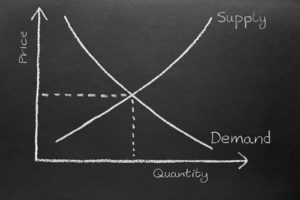The FTC’s Confused Case Against Amazon
On September 26th, the FTC and 17 state attorneys general filed an antitrust complaint against Amazon in federal court. The complaint alleges several anticompetitive behaviors and asserts that Amazon uses its monopoly power to give itself an unfair advantage.
Over the past few days, I have been going through the complaint. There is one area of the complaint where the FTC accidently proves Amazon faces fierce competition and is not a monopolist: Section VII on Project Nessie. In the official complaint, that section is heavily redacted. However, the Wall Street Journal reported on the FTC’s allegations of what Project Nessie is and how it supposedly gave Amazon monopoly power.
Project Nessie was an algorithm created by Amazon to test the waters for price increases. Nessie would raise the price of certain goods and then monitor reactions by Amazon’s rivals like Target, Walmart, etc. If they matched Amazon’s new, higher price, the price would stay. If they did not, the price would return to its previous level. The FTC alleges Nessie allowed Amazon to extract wealth from consumers through these higher prices. Consequently, Amazon was behaving in an uncompetitive manner.
The FTC’s evidence of Project Nessie has two deadly flaws. First, the goal of Nessie was to compare Amazon’s price increase to other retailers. Thus, the existence of the project shows that Amazon faced substantial competition in its ecommerce market; competition they had to monitor and adjust to. Second, the fact that Nessie was programed to reduce prices to previous levels if the other competitors didn’t increase theirs indicates that Amazon is a price-taker, not a price-maker. They have to follow the market price; they cannot just increase their prices as they wish. Amazon’s behavior is not of a monopolist but of a competitive firm. The existence of Nessie actually proves Amazon faces a highly competitive ecommerce industry.

Project Nessie seems to be a potentially efficient way of doing what firms of all stripes do: try to figure out the demand curve. Firms are constantly testing price changes. Supply and demand curves do not exist ahead of time. Rather, they are revealed through the market process: through the constant changing of prices and behaviors, consumers reevaluate purchasing decisions and sellers reevaluate production decisions. New information comes in and new prices emerge. Those new prices send signals, causing suppliers and consumers to reevaluate again, etc. This ongoing process is a sign of a functioning market. From this process, demand curves and supply curves emerge. Project Nessie was just another form of participating in the market process.
Other elements of the FTC’s complaint may have antitrust merit; I am unfamiliar with antitrust law to judge one way or the other. But the Project Nessie element does not have economic standing. Declaring Project Nessie uncompetitive would make illegal the normal way that firms compete with one another.
Jon Murphy is an assistant professor of economics at Nicholls State University.

